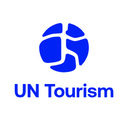Strong outbound tourism demand from both traditional and emerging markets in 2017

Virtually all source markets reported higher tourism spending in 2017, reflecting continued strong demand for international tourism across all world regions. Both emerging and advanced economies fuelled growth, led by the United States which spent US$ 12 billion more on travel abroad. China spent US$ 8 billion more, consolidating its leadership as the biggest spender in the world. The Russian Federation spent US$ 7 billion more and Brazil US$ 5 billion more, both rebounding from weaker spending in previous years. Strong tourism expenditure reflects enhanced connectivity, increased visa facilitation and a global economic upswing.
All top 25 source markets reported higher spending on international tourism in 2017, as highlighted in the latest UNWTO World Tourism Barometer. China consolidated its leadership as the biggest spender in travel abroad in 2017 with US$ 258 billion in expenditure (+5% in local currency).
The other three BRIC economies all substantially increased expenditure in 2017. The Russian Federation (+13%) rebounded after a few years of declines, to reach US$ 31 billion, climbing three places to re-enter the top ten at number 8. Brazil (+20%) also recovered strongly and moved up eight places to number 16 with US$ 19 billion in expenditure. India continued its rise with 9% growth in spending to US$ 18 billion and moved up four places in the ranking to 17th.
"Emerging economies play a key role in tourism development and we are very pleased to see the rebound of the Russian Federation and Brazil, and the ongoing rise of India, as these key emerging outbound markets contribute to growth and market diversification in many destinations", said UNWTO Secretary-General, Zurab Pololikashvili.
Advanced economies also performed robustly in 2017, led by the United States (+9%), the world's second largest outbound market. US travellers spent US$ 12 billion more on international tourism to US$ 135 billion. Expenditure from Germany (3rd largest market) and the United Kingdom (4th) both increased 3%, and from France (5th) 1%.
Australia (6th) reported 7% growth and Canada (7th) a 9% increase. Completing the top ten are the Republic of Korea (9th) where expenditure grew by 9% and Italy (10th) where it increased by 6%.
Beyond the top ten, tourism spending also grew notably in Sweden (+14%) and Spain (+12%).
These strong results in outbound tourism are consistent with the 7% increase in international tourist arrivals in 2017. Demand for travel was particularly high in Europe, where arrivals increased 8% last year.
The above data is preliminary and subject to revision. Comprehensive results are included in the latest issue of the UNWTO World Tourism Barometer.
Relevant links:
International Tourism Expenditure - Top Spenders 2017 Infographics
International Tourist Arrivals 2017 Infographics
About UN Tourism
The World Tourism Organization (UN Tourism) is the United Nations agency responsible for the promotion of responsible, sustainable and universally accessible tourism.
As the leading international organization in the field of tourism, UN Tourism promotes tourism as a driver of economic growth, inclusive development and environmental sustainability and offers leadership and support to the sector in advancing knowledge and tourism policies worldwide.
Our Priorities
Mainstreaming tourism in the global agenda: Advocating the value of tourism as a driver of socio-economic growth and development, its inclusion as a priority in national and international policies and the need to create a level playing field for the sector to develop and prosper.
Promoting sustainable tourism development: Supporting sustainable tourism policies and practices: policies which make optimal use of environmental resources, respect the socio-cultural authenticity of host communities and provide socio-economic benefits for all.
Fostering knowledge, education and capacity building: Supporting countries to assess and address their needs in education and training, as well as providing networks for knowledge creation and exchange.
Improving tourism competitiveness: Improving UN Tourism Members' competitiveness through knowledge creation and exchange, human resources development and the promotion of excellence in areas such as policy planning, statistics and market trends, sustainable tourism development, marketing and promotion, product development and risk and crisis management.
Advancing tourism's contribution to poverty reduction and development: Maximizing the contribution of tourism to poverty reduction and achieving the SDGs by making tourism work as a tool for development and promoting the inclusion of tourism in the development agenda.
Building partnerships: Engaging with the private sector, regional and local tourism organizations, academia and research institutions, civil society and the UN system to build a more sustainable, responsible and competitive tourism sector.
Our Structure
Members: An intergovernmental organization, UN Tourism has 160 Member States, 6 Associate Members, 2 Observers and over 500 Affiliate Members.
Organs: The General Assembly is the supreme organ of the Organization. The Executive Council take all measures, in consultation with the Secretary-General, for the implementation of the decisions and recommendations of the General Assembly and reports to the Assembly.
Secretariat: UN Tourism headquarters are based in Madrid, Spain. The Secretariat is led by the Secretary-General and organized into departments covering issues such as sustainability, education, tourism trends and marketing, sustainable development, statistics and the Tourism Satellite Account (TSA), destination management, ethics and risk and crisis management. The Technical Cooperation and Silk Road Department carries out development projects in over 100 countries worldwide, while the Regional Departments for Africa, the Americas, Asia and the Pacific, Europe and the Middle East serve as the link between UN Tourism and its 160 Member States. The Affiliate Members Department represents UN Tourism's 500 plus Affiliate members.
Marcelo Risi
UNWTO Communications & Publications Programme
(+34) 91 567 81 60
UN Tourism
